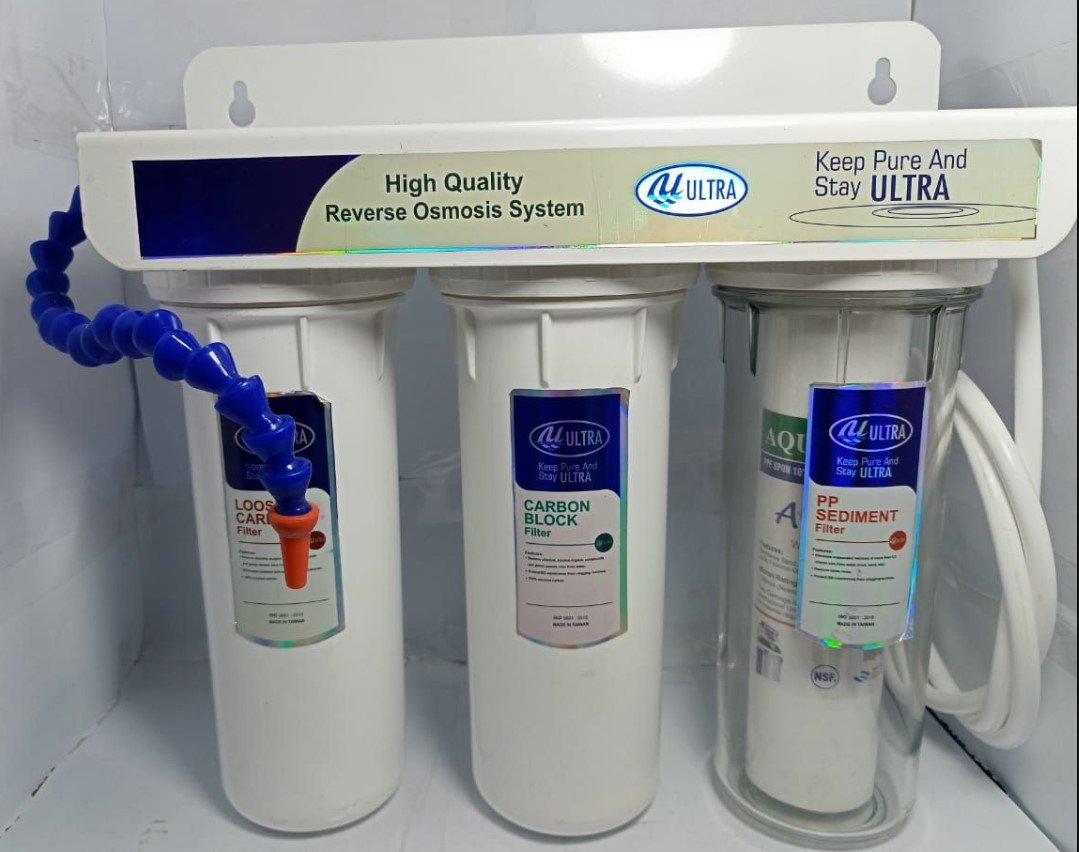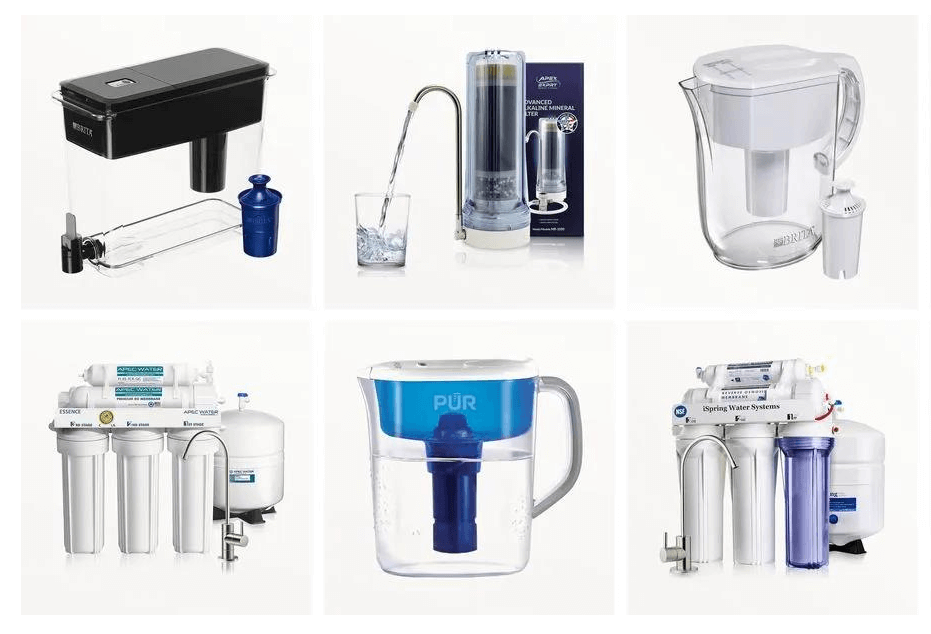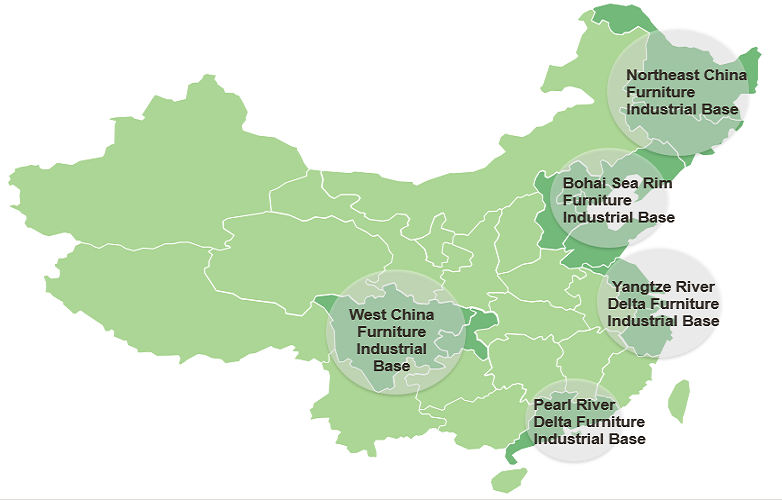Refreshing Insights: China’s Water Filter Suppliers
Finding the best water filter supplier from China can be a challenge. Here are 12 tips to help you in your search: research the supplier, check product quality and certifications, compare prices, examine delivery and shipping options, look for a strong warranty and return policy, consider the supplier’s reputation and history, examine the product range, see if the supplier offers custom orders, evaluate the customer service, consider the after-sales service, ask for a sample before placing an order, and finally, make sure the supplier is trustworthy.
1. Why Water Filter?
2. What Are Water Filtration Systems?
3. What Water Filter Do I Need?
4. How Water Filter Work?
5. What Water Filter Is Best?
6. How Water Filters Are Made?
7. How Long Water Filter Last?
8. How Much Does Water Filter Cost?
9. What Should I Look For When Buying A Water Filter?
10. Where To Buy Water Filter From China?
11. Import Water Filter from China FAQ
11.1 What are the advantages of water filtration?
11.2 Which is the cheapest and most effective water filter?
11.3 Which type of RO water system is the best?
11.4 will I need a reverse osmosis system?
11.5 what’s a whole house water filter?
11.6 What certifications should a water filter manufacturer have?
11.7 What are the common payment terms when importing from China?
11.8 How do I ensure the quality of the water filters I import from China?
12. Why Choose Huntersourcing As Your Water Filter Sourcing Agent??
1. Why Water Filter?

Water filters are used to remove impurities and contaminants from drinking water. Some common contaminants found in tap water include chlorine, lead, sediment, bacteria, and chemicals such as pesticides and herbicides. These contaminants can affect the taste and odor of drinking water, and some of them can even be harmful to your health.
By using a water filter, you can ensure that the water you drink is clean, clear, and free of harmful substances. Some water filters are designed to remove specific contaminants, while others are more comprehensive and can remove a range of impurities.
Using a water filter can also help to improve the overall quality of your drinking water, making it more enjoyable to drink and better for your health. Additionally, by filtering your own water, you can reduce your reliance on plastic bottled water, which is not only more expensive but also more environmentally damaging.
2. What Are Water Filtration Systems?

Water filtration systems are devices or systems designed to remove impurities, contaminants, and other unwanted substances from drinking water. These systems can range from simple pitchers or faucet-mounted filters to complex whole-house filtration systems. The type of filtration system used depends on the specific contaminants present in the water, as well as the desired level of filtration.
Water filtration systems typically use one or more filtration methods, such as activated carbon, reverse osmosis, and ultrafiltration, to remove contaminants from the water. Activated carbon filtration works by adsorbing impurities and chemicals onto the surface of the carbon, while reverse osmosis uses a semi-permeable membrane to filter out impurities. Ultrafiltration uses a fine mesh filter to remove particles, bacteria, and other contaminants from the water.
Water filtration systems are important for ensuring that drinking water is free from harmful contaminants and can help improve the taste, odor, and overall quality of the water. In areas with poor water quality, filtration systems can provide a safe and reliable source of drinking water.
3. What Water Filter Do I Need?
The type of water filter you need depends on your specific water treatment needs. Some of the factors you should consider include the source of your water (e.g., well water, city water, etc.), the quality of the water (e.g., high levels of chlorine, hardness, etc.), and the contaminants you want to remove (e.g., lead, chlorine, bacteria, etc.).
For example:
3.1 If you have city water and want to remove chlorine, chloramines, and other chemical contaminants, a carbon block filter or a whole-house filter that utilizes activated carbon is a good choice.
3.2 If you have well water and want to remove sediment, sand, and other physical contaminants, a sediment filter or a sand separator is a good choice.
3.3 If you have hard water and want to remove excess minerals such as calcium and magnesium, a water softener is a good choice.
3.4 If you have bacteria or virus contamination in your water, a UV filter is a good choice.
3.5 If you want to remove a wide range of contaminants, including minerals and other dissolved substances, a reverse osmosis system is a good choice.
Ultimately, the best water filter for you will depend on your specific water treatment needs and the quality of your water. It’s always a good idea to have your water tested by a professional to determine the specific contaminants present and to help you choose the right water filter for your needs.
4. How Water Filter Work?
Water filters work by removing impurities and contaminants from water, making it safe to drink. They can remove a variety of substances, including bacteria, viruses, heavy metals, chemicals, and sediment, depending on the type of filter.
There are many different types of water filters, including activated carbon filters, reverse osmosis filters, ceramic filters, and ultraviolet filters.
Activated carbon filters work by adsorbing impurities and contaminants onto the surface of activated carbon. The activated carbon has a large surface area with many pores that trap the impurities as the water passes through the filter.
Reverse osmosis filters use a semi-permeable membrane to remove impurities from water. The membrane only allows water molecules to pass through while trapping larger contaminants and impurities on the other side.
Ceramic filters have a porous ceramic shell that removes impurities from water. The pores in the ceramic are small enough to trap bacteria, parasites, and sediment, but allow water to pass through.
Ultraviolet filters use ultraviolet light to kill bacteria, viruses, and other pathogens in water. UV light disrupts the DNA of the pathogens, making them unable to reproduce and effectively neutralizing them.
Water filters can be found in many different forms, including faucet-mounted filters, pitcher filters, under-sink filters, and whole-house filters, to name a few. The type of filter you choose will depend on your specific needs and the contaminants you want to remove from your water.
5. What Water Filter Is Best?
The best water filter depends on various factors such as the type of contaminants you want to remove, the source of your water (tap water, well water, etc.), and your budget. Some common water filtration systems include:
5.1 Reverse Osmosis (RO) systems – these are effective in removing a wide range of contaminants, including dissolved solids, heavy metals, and minerals.
5.2 Activated Carbon filters – these are effective in removing chlorine, pesticides, and other chemical pollutants.
5.3 Ultraviolet (UV) light filters – these are effective in killing bacteria and viruses in the water.
5.4 Ceramic filters – these are effective in removing bacteria and other larger contaminants.
5.5 Distillation systems – these boil water to create steam, which is then condensed and collected, effectively removing a wide range of contaminants.
It’s important to note that different filtration systems are more effective in removing certain contaminants, so you should choose a system based on the specific needs of your water source.
Additionally, it’s a good idea to have your water tested by a professional to determine the specific contaminants you need to remove.
6. How Water Filters Are Made?
Water filters are typically made through a combination of several steps that include:
6.1 Making pleats: The first step in making a water filter involves creating the pleats in the filter material. This is typically done using a pleating machine that heats and shapes the filter material into the desired pleat pattern.
6.2 Side seam thermal welding: Once the pleats have been made, the sides of the filter are sealed to prevent any contaminants from bypassing the filter material. This is done using a process called side seam thermal welding, which uses heat to bond the sides of the filter material together.
6.3 Pleated length controlled: To ensure the correct length of the filter, the pleated material is carefully measured and cut to size. This is done using specialized cutting equipment to ensure accurate and consistent measurements.
6.4 Assembling: Once the pleats have been made, the sides have been sealed, and the length has been controlled, the filter material is ready to be assembled into a complete filter unit. This typically involves attaching the filter material to a frame and adding end caps to secure the filter in place.
6.5 Both ends thermal welded: To prevent any contaminants from bypassing the filter material, the end caps are securely attached to the filter frame using a process called both ends thermal welding.
6.6 End cap connected: The end caps are then connected to the filter housing, which provides a secure connection to the water supply.
6.7 Testing: Once the filter has been assembled, it is thoroughly tested to ensure that it meets the specified performance standards and to check for any leaks or other defects.
6.8 Packing: Finally, the water filter is packaged for shipment and distribution.
These steps may vary slightly depending on the specific type of water filter being made and the manufacturer’s methods, but the basic principles remain the same.
7. How Long Water Filter Last?
The lifespan of a water filter depends on several factors, including the type of filter, the amount of water being filtered, the quality of the water, and the manufacturer’s specifications. Here are some general estimates for different types of filters:
7.1 Activated carbon filters: These filters can last between 2 to 6 months, but the exact lifespan will depend on the quality of the water being filtered and the filter’s usage.
7.2 Reverse osmosis filters: These filters have multiple stages and can last anywhere from 1 to 3 years, but again, the exact lifespan will depend on usage and the quality of the water being filtered.
7.3 Whole-house water filters: These filters can last from 3 to 5 years, depending on the type of filter and the quality of the water being filtered.
7.4 Pitcher filters: These filters are designed for small amounts of water and typically need to be replaced every 2 to 3 months.
It’s important to note that these are general estimates and the actual lifespan of a water filter may vary. Some manufacturers also provide a recommended replacement schedule for their filters, so it’s a good idea to check the manual or the manufacturer’s website for more specific information...
8. How Much Does Water Filter Cost?

The cost of a water filter can vary widely depending on several factors such as the type of filter, the size of the unit, the brand, and the place of purchase. Here are some rough price ranges for different types of water filters:
8.1 Pitcher filters: These are the most affordable option, with prices ranging from $10 to $40.
8.2 Faucet-mounted filters: These can cost anywhere from $20 to $70.
8.3 Countertop filters: Prices for these can range from $50 to $200.
8.4 Under-sink filters: These are more expensive than the other options, with prices ranging from $100 to $500.
8.5 Whole-house filters: These are the most expensive option, with prices ranging from $500 to $5,000 or more, depending on the size of the unit and the type of filtration system.
In general, higher-priced filters tend to provide better filtration and have a longer lifespan, but the specific needs of your household will dictate the best option for you.
9. What Should I Look For When Buying A Water Filter?
When buying a water filter, there are several factors to consider:
9.1 Compliance with industry standards: Look for a water filter that meets industry standards such as NSF/ANSI 42, 53, and 58 for contaminants reduction.
9.2 Filtration capabilities: Consider the type of contaminants you want to remove from your water and choose a water filter that is capable of removing those specific contaminants.
9.3 Quality of materials: Look for a water filter made of high-quality materials that are durable and long-lasting.
9.4 Customizability: Some water filters allow you to customize the filtration process to meet your specific needs.
9.5 Quality control measures: Choose a water filter brand that has a strong quality control process in place to ensure the reliability and effectiveness of its products.
9.6 Technical support: Good customer support can help you with any questions or concerns you may have about your water filter.
9.7 Fast shipment: If you need the water filter quickly, look for a company that offers fast shipment options.
9.8 Cost-effectiveness: Consider the cost of the water filter and compare it to other options to ensure you are getting a good value for your money..
10. Where To Buy Water Filter From China?
These are some of the B2B websites where you can purchase water filters from China:
Alibaba.com
Made-in-China.com
DHgate.com
GlobalSources.com
Aliexpress.com
Chinabrands.com
Huntersourcing.com (which is a China sourcing agent)
It’s always a good idea to research the supplier and the product before making any purchase. Make sure to read reviews and check the supplier’s reputation to avoid scams or purchasing a low-quality product.
Additionally, you may also want to consider purchasing from a supplier with a good return policy in case the product does not meet your expectations.
11. Import Water Filter from China FAQ

Importing a water filter from China can be a cost-effective option, but there are several factors to consider, including product quality, shipping costs, and customs regulations.
11.1 What are the advantages of water filtration?
Water filtration has several advantages, including:
1. Improved health: Filtering water removes contaminants that can cause health problems, such as bacteria, viruses, parasites, and chemicals like lead and chlorine. This can help improve overall health and reduce the risk of illness.
2. Improved taste and odor: Filtering water can remove impurities that affect the taste and odor of water, making it more pleasant to drink.
3. Cost savings: Filtering water at home can save money compared to buying bottled water, and it can also reduce the cost of buying and maintaining bottled water coolers.
4. Environmentally friendly: Filtering water reduces the need for bottled water, which has a negative impact on the environment due to the production, transportation, and disposal of plastic bottles.
5. Convenience: Home water filtration systems are convenient, as they provide filtered water directly from the tap, eliminating the need to purchase, transport, and store bottled water.
6. Increased peace of mind: Filtering water provides peace of mind, knowing that the water being consumed is free of harmful contaminants.
11.2 Which is the cheapest and most effective water filter?
The cost and effectiveness of a water filter can vary greatly depending on several factors, including the type of filter, the size of the unit, and the specific contaminants you want to remove from your water.
For a simple and inexpensive option, an activated carbon filter pitcher is a good choice. These filters are effective in removing chlorine, organic compounds, and other chemicals from the water, but may not remove heavy metals and other toxic substances. Another inexpensive option is a faucet-mounted water filter, which can also be effective in reducing chlorine and other chemicals, but again may not remove heavy metals and other contaminants.
If you’re looking for more comprehensive filtration, you may want to consider a reverse osmosis system. These filters are more expensive, but they are highly effective in removing a wide range of contaminants, including heavy metals, bacteria, and toxic chemicals.
Ultimately, the best water filter for you will depend on your specific needs and budget. I would recommend conducting a water test to determine the contaminants present in your water, and then researching the different types of filters that are effective in removing those specific contaminants.
11.3 Which type of RO water system is the best?
There is no single “best” type of Reverse Osmosis (RO) water system, as the best choice for a particular individual will depend on their specific needs and preferences. Some factors to consider when choosing an RO water system include:
Water quality: The type and level of contaminants present in your water supply will impact the type of RO system you need.
Water usage: The amount of water you use on a daily basis will determine the size of the RO system you need.
Budget: The cost of different RO systems can vary greatly, so it’s important to choose a system that fits within your budget.
Space: Some RO systems are compact and can be installed under a sink, while others are large and require more space.
Maintenance: Some RO systems require more maintenance than others, so it’s important to choose a system that you are able and willing to maintain.
Based on these factors, some popular types of RO systems include:
Under-sink RO systems: These are compact systems that can be installed under a kitchen sink and provide high-quality drinking water.
Whole-house RO systems: These are large systems that are installed at the main water supply and provide treated water to the entire house.
Portable RO systems: These are compact systems that can be easily moved from one location to another and are a good choice for people who live in areas with poor water quality.
Ultimately, the best type of RO water system for you will depend on your specific needs and preferences. It may be helpful to consult with a water treatment professional to determine the best system for your situation..
11.4 will I need a reverse osmosis system?
The need for a reverse osmosis (RO) system depends on the quality of your water source and the intended use of the water. RO systems are commonly used to purify water for drinking and cooking, as they can remove impurities such as bacteria, viruses, chemicals, and minerals that can affect the taste, odor, or safety of the water.
To determine whether you need an RO system, you should have your water tested to determine its mineral content, pH, and presence of any contaminants. Based on the results of this testing, you can determine if an RO system is necessary to meet your needs.
If you have a well or live in an area with hard water, an RO system may be necessary to remove high levels of minerals and impurities. On the other hand, if you have a municipal water supply, it may already be treated to meet safe drinking water standards, and an RO system may not be necessary.
In general, if you are concerned about the quality of your water or if you want to ensure that you have access to safe, pure water for drinking and cooking, an RO system may be a good investment.
11.5 what’s a whole house water filter?
A whole-house water filter is a filtration system that is designed to treat all of the water that enters your home. It is typically installed at the main water supply line and filters all of the water that is used for drinking, cooking, cleaning, and other household purposes.
Whole house water filters come in various types, including sediment filters, activated carbon filters, and reverse osmosis systems.
The specific type of filter you choose will depend on the quality of your water and the contaminants you want to remove.
The goal of a whole-house water filter is to provide clean and safe water for your entire household, while also improving the taste and odor of your water.
11.6 What certifications should a water filter manufacturer have?
A reputable water filter manufacturer should have certifications such as ISO 9001, NSF, and CE. These certifications demonstrate that the manufacturer has met international quality and safety standards and can provide products that meet your requirements.
11.7 What are the common payment terms when importing from China?
The most common payment terms when importing from China are T/T (Telegraphic Transfer), L/C (Letter of Credit), and D/P (Documents Against Payment). You should discuss with your supplier what payment terms are suitable for your needs, taking into account the costs, risks, and processing time involved with each option..
11.8 How do I ensure the quality of the water filters I import from China?
To ensure the quality of the water filters you import from China, you can take several steps, such as:
1. Working with a reliable and trustworthy supplier
2. Checking the supplier’s certifications and quality control procedures
3. Visiting the supplier’s factory and conducting an on-site inspection
4. Requesting product samples and testing them to ensure they meet your standards
5. Work with a reliable China sourcing agent.
12. Why Choose Huntersourcing As Your Water Filter Sourcing Agent?

As a language model, I do not have personal opinions, but I can provide you with some potential reasons why someone might choose Huntersourcing as their water filter sourcing agent.
12.1 Experience: Huntersourcing has extensive experience in sourcing water filters, which gives them an in-depth understanding of the market, suppliers, and manufacturers.
12.2 Network: They have a wide network of reliable suppliers and manufacturers, which ensures that you have access to a variety of options to choose from.
12.3 Quality control: Huntersourcing performs rigorous quality control checks on all the products they source, which helps ensure that you receive high-quality water filters.
12.4 Cost-effective: As a sourcing agent, Huntersourcing can help you find the most cost-effective water filters by negotiating directly with suppliers and manufacturers.
12.5 Time-saving: Sourcing water filters can be a time-consuming process, but with Huntersourcing, you can save time as they handle the entire sourcing process for you.
12.6 Language barriers: If you are not familiar with the language or culture of the country where you are sourcing water filters, Huntersourcing can help you overcome any communication barriers.
12.7 Risk reduction: By working with Huntersourcing, you can reduce the risk of doing business in a foreign country, as they have a thorough understanding of the legal and regulatory requirements.
These are some of the reasons why someone might choose Huntersourcing as their water filter sourcing agent.
Related Post
Furniture is a must for an office or a home. It is available at varying price points as Read more
Wood is extensively used in making furniture around the world. Wood can be molded in any shape or Read more
In the current market condition, a major portion of the world's consumption depends on China. The product range Read more
Contact Us Get Free Quote!
* Please kindly fill out the form for inquiry
* we will reply to your inquiry within 24hours




